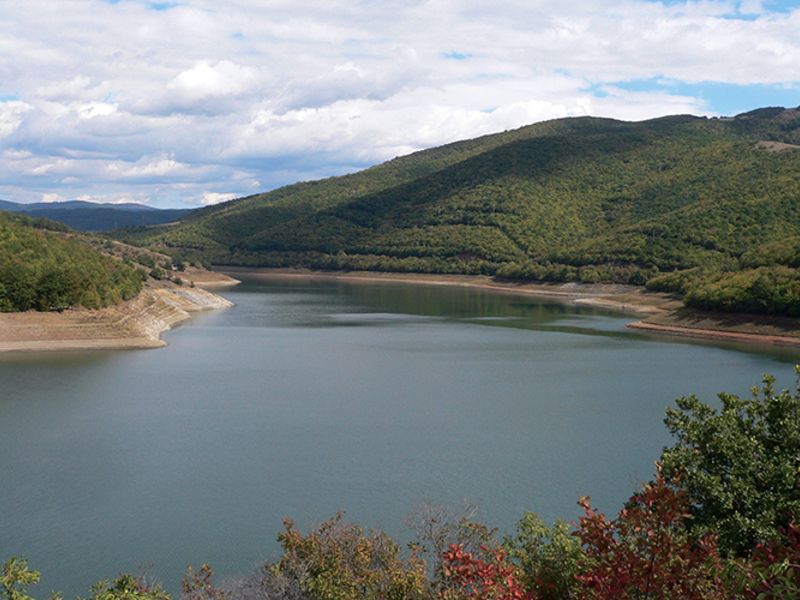Kosovo, entire country:Rural Water and Sanitation Support Programme Kosovo Phase V
Disciplines
-
Sanitation
Companies
Dorsch International Consultants
Construction Sum
14.4 million €
Number of Employees
11
Client
Swiss Agency for Development and Cooperation (SDC)
Duration
From 2014 to 2018Project Activities
The following project tasks are performed for outcome 1:
- Selection / prioritisation of project locations;
- Organising stakeholders and communities;
- Agree on the project implementation through a memorandum of understanding (MoU);
- Tendering and supervising design of the construction works;
- Tendering and supervising of the construction works;
- Technical acceptance of construction works and handing over to RWC;
- Integrating O&M in the existing O&M strategy;
- Information campaigns on rational water usage, sewage, payments, water-health issues, etc.;
- Capacity building of RWCs.
The following project tasks are executed for outcome 2:
- Strengthening the capacities for investment planning and implementation;
- Improving O&M of rural systems;
- Improving water source protection in rural water systems;
- Reducing non-revenue water;
- Support the RWCs to establish links to peers in the Region.
For outcome 3:
- Coordinated, facilitated and managed the integration of non-regulated supply systems in 7 minority municipalities into RWC operations
- The project has coordinated its activities with national sector institutions to cover
Besides the following processes were promoted:
- the shift towards a stronger use of country systems;
- integration of SDC’s transversal themes (Gender and Governance) in all interventions;
- Ensuring adequate coordination with all programme partners;
- Ensuring continuity of implementation approaches and cooperation with partners from Phase IV.
Contact
Dorsch International Consultants GmbH
München (Headquarters)
80687 München
Germany
Phone: +49 89 5797-0
Fax: +49 89 5797-800
E-Mail: info@dorsch.de
Description
Background
At the beginning of the Programme about 40% of the population in Kosovo, mainly in rural areas, still lacked access to piped water supply systems or relied on poorly functioning ones, not managed by licensed operators. Adequate wastewater treatment is almost absent in both rural and urban areas. 65% of the total population living in settlements benefit from a sewer system, whereas only 42% of the rural population has access to a sewer. There is no monitoring of the quantities nor the quality of the discharges. The wastewater in rural areas is disposed of into open earth channels or old and possibly damaged septic tanks which contaminate surface and groundwater, resulting in poor-quality drinking water from wells.
Despite the advanced legal and regulatory sector framework, Kosovo’s water sector remains fragile as the regional water companies (RWCs) at the start of the Programme were far from operating sustainably. Collection rate is only at about 60% and water losses are very high, at an average of 61%, and have even increased. Some municipalities were reluctant to put their water systems under RWC management, because of weak application of services’ standards and a lack of water sources protection. Low capacities and high (technical and commercial) water losses undermined the RWCs’ sustainability, in some cases generating insufficient revenues even for covering just operation and maintenance (O&M) costs. In 2016 all companies achieved an income to cost ratio of more than 1.0.
Since 1999 SDC contributed significantly to the improvement of the water supply and sanitation situation in rural areas in Kosovo through the previous phases of the Rural Water and Sanitation Support Programme (RWSSP).
Objectives
This project is a scaling up of the previous phases. The expected outcomes are:
- Kosovo’s RWCs cover the water supply for the large majority of the population all over the country and manage rural wastewater treatment systems;
- Kosovo’s water and sanitation services are sustainable;
- Kosovo-wide coordination of rural water supply and sanitation issues is in place.
To achieve these outcomes, for this project the following intervention lines are foreseen:
- Construction and improvement of rural water supply and wastewater systems;
- Support to water service companies to improve their performance (efficient, reliable and affordable water supply services) and to become sustainable;
- Integration of water and wastewater systems in minority municipalities to RWC operation and management
Project Measures
- Increase of the population with access to water supply systems managed by RWCs from 66% to 80%;
- Increase of the access of ethnic minorities to water supply systems managed by RWCs from 50% to 65%;
- Reduction of NRW through development and implementation of NRW reduction plan based on DMAs,
- Realisation of RWC managed water supply systems for 80,000 people in rural areas;
- Upgrading and rehabilitation of RWC managed water supply systems for 240,000 people in rural areas;
- Realisation of up to 4 pilot systems for rural wastewater collection and treatment managed by RWCs;
- Establishing PIUs in all seven RWCs to manage rehabilitation projects for water and sanitation services;
- Enabling of all RWCs to operate and maintain the systems under their control;
- Integration of water source protection in the spatial planning of 2 Municipalities;
- Preparation and nationwide dissemination of a guideline on water source protection;
- Increase of the collection rate in targeted district metered areas (DMA) of partner RWCs to 80%;
- Increase of the percentage of customers covered by targeted DMAs to 10% in 4 RWCs;
- Increase of the percentage of rural customers in targeted DMAs to 40% in 4 RWCs;
- Participation of all RWCs in regional exchange activities;
- Establishment of MoU and implementation of activities between 2 RWCs and other utilities in the region.
Joint Venture Partner
Community Development Initiatives



